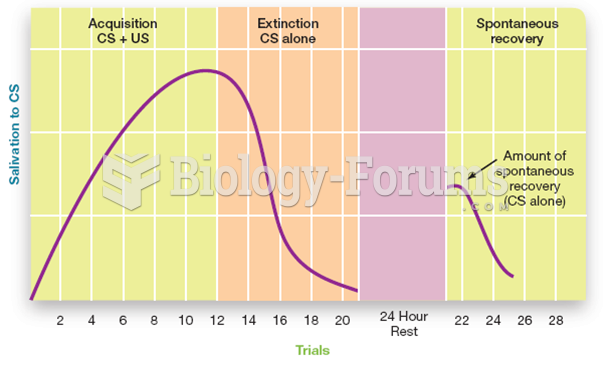|
|
|
It is believed that the Incas used anesthesia. Evidence supports the theory that shamans chewed cocoa leaves and drilled holes into the heads of patients (letting evil spirits escape), spitting into the wounds they made. The mixture of cocaine, saliva, and resin numbed the site enough to allow hours of drilling.
Vital signs (blood pressure, temperature, pulse rate, respiration rate) should be taken before any drug administration. Patients should be informed not to use tobacco or caffeine at least 30 minutes before their appointment.
The B-complex vitamins and vitamin C are not stored in the body and must be replaced each day.
Bacteria have been found alive in a lake buried one half mile under ice in Antarctica.
Pubic lice (crabs) are usually spread through sexual contact. You cannot catch them by using a public toilet.







